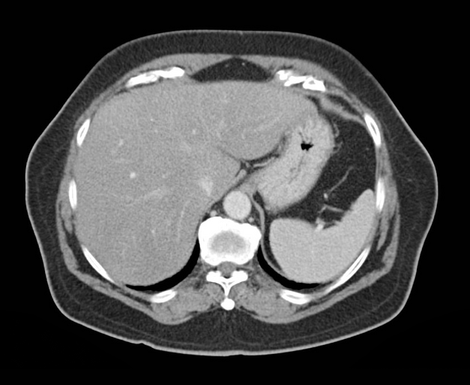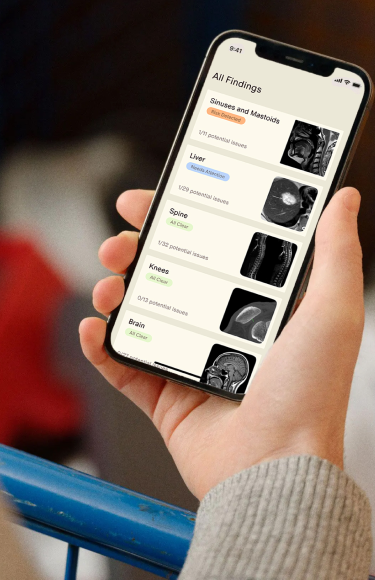Cancer is the second leading cause of death in Switzerland, with early screenings crucial for improved survival rates.
Every year in Switzerland, 17,200 people die from cancer, making it the second leading cause of death in the country. Among men, prostate cancer is the most common cancer-related cause of death (21% of cases per year), followed by lung cancer (14%) and colorectal cancer (10%).
For women, breast cancer ranks first (18%), followed by lung cancer (15%) and colorectal cancer (11%). Approximately 45,500 people are newly diagnosed with cancer in Switzerland each year.
Cancer survival rates have significantly improved over the past decades. Today, around 68% of cancer patients live five years after diagnosis. This improvement is largely due to the increasing availability of cancer prevention programs. Many cantons already offer screening programs to enable better early detection and treatment.
In the following article, we will explain what screening means, which screening programs are available, and who these programs are particularly recommended for.
What is Screening?
Screening refers to a systematic testing procedure in a person to detect diseases early before symptoms appear. The goal is to discover cancer or other diseases at a stage when they are still treatable, thus improving the chances of recovery.
The risk of developing cancer increases with age. Other factors such as family history, smoking, excessive alcohol consumption, unhealthy diet, lack of exercise, and certain viruses like HPV and Hepatitis B also play a role.
Why is Screening Important?
Screening involves testing people who have no symptoms to check for cancer or other diseases. Regular early detection exams can identify cancer at an early stage when tumors are still small and potentially easier to treat.
Early detection can potentially prevent some cancers from developing. It is believed that 93% of cervical cancer cases can be prevented through cancer screening and HPV vaccination. Studies suggest that 68% of colorectal cancer deaths can be prevented. Women who participated in mammography screening had a 41% lower risk of dying from breast cancer within the following 10 years.
Who Should Participate in Screening Programs?
The Cancer League recommends regular preventive exams for breast cancer, cervical cancer, prostate cancer, and colorectal cancer. Lung cancer screening can be considered particularly for high-risk patients.
For many other types of cancer, studies are ongoing to determine how best to detect cancer before symptoms appear.
| Type of Cancer | Age | Examination |
|---|---|---|
| Breast cancer | from 50 | Mammography (every 2 years) |
| Colorectal cancer | from 50 | Stool test (every 2 years) |
| Colonoscopy (every 10 years) | ||
| Cervical cancer | from 18 | Pap test (every 3 years) |
| HPV test (for self-payers) | ||
| Skin cancer | from 35 | Skin examination (annually) |
| Prostate cancer | from 50 (earlier if family history) | Digital rectal exam (every 2 years) |
| PSA test (every 1-2 years) | ||
| Lung cancer | no specific age, but recommended for high-risk individuals | Low Dose CT |
Which Screening Tests Are Available?
Skin Cancer Screening
Annually, an estimated 20,000 to 25,000 people are diagnosed with non-melanoma skin cancer in Switzerland, and around 3,200 with melanoma. The good news is that skin cancer has high curability if detected early.
This is especially true for melanoma, where early diagnosis plays a crucial role in successful treatment. Non-melanoma skin cancers like squamous cell carcinoma (Spinalioma) and basal cell carcinoma (Basalioma) are also detected through skin cancer screening.
The examination is performed with a dermatoscope, a device used to closely examine skin areas for suspicious changes. If a suspicious change is found, a small tissue sample (biopsy) is taken and examined in a laboratory.
Breast Cancer Screening
Breast cancer is the most common cancer and leading cause of cancer death among women in Switzerland. More than 6,500 women are diagnosed with breast cancer annually, and over 1,300 die each year. However, the chances of curing breast cancer are good if it is detected early, as tumors are usually small, treatments less burdensome, and success rates significantly higher.
Therefore, it is important for women to regularly examine their breasts for changes and participate in recommended early detection screenings.
Breast cancer screening includes a clinical breast examination by a gynecologist and, from the age of 50, a mammography screening (every two years). This involves an X-ray of the breast to detect both benign and malignant changes in breast tissue.
Cervical Cancer Screening
Cervical cancer is most commonly diagnosed in women between 35 and 44 years. About 250 women are newly diagnosed with cervical cancer each year in Switzerland. Every three years, the costs for a Pap smear are covered. This test involves taking cells from the cervix with a swab, which are then examined for cell changes in a cytological analysis. This can detect and treat precancerous stages of cervical cancer early.
A test for human papillomavirus (HPV test), the cause of cervical cancer, is currently not covered by health insurance in Switzerland. Importantly, even those who have received an HPV vaccination should continue to undergo regular screenings since the vaccine does not protect against all cancer-causing HPV types.
Colorectal Cancer Screening
While colorectal cancer mostly affects people aged 50 and older, it can occur at any age.
Adults should start regular colorectal cancer screening at age 50. Those at higher risk due to family or personal history or other factors should consider starting earlier.
The colorectal cancer screening program includes a colonoscopy or a fecal occult blood test. Available fecal occult blood tests detect colorectal cancer in approximately 50-80% of cases. Colonoscopy detects around 89-95% of colorectal cancer cases. Several studies have shown that cancer mortality is 29-68% lower in people who undergo preventive colonoscopy compared to those who do not. Blood tests like liquid biopsy can also be a highly accurate indicator for colorectal cancer, with an accuracy of 83%.
Lung Cancer Screening
Approximately 4,900 people in Switzerland are diagnosed with lung cancer each year, and about 3,300 die from it. The best method to detect lung cancer early is a low-dose computed tomography (low-dose CT scan, LDCT). The accuracy of lung cancer screening with CT is 95%. However, lung cancer screening is not currently covered by health insurance.
Prostate Cancer Screening
Prostate cancer is the most common cancer among men in Switzerland, with around 6,600 new cases diagnosed annually. The risk with age, and most cases occur in men over 65. Therefore, annual to biennial prostate cancer screening is recommended for men aged 50 and older. Men with a family history of prostate cancer before the age of 65 should begin screening at 45.
Prostate cancer screening includes a digital rectal examination (DRE). However, small tumors or those not palpable due to their location may go undetected by DRE. Prostate-specific antigen (PSA) testing in the blood can detect prostate cancer. MRI scans of the prostate can identify even small tumors with 93% accuracy.
Does Health Insurance Cover Screening?
Health insurance in Switzerland covers the costs of various important preventive exams to promote the health of its insured members and detect diseases early.
- Gynecological preventive exam with Pap smear every three years
- Mammography for women at high risk of breast cancer
- Colorectal cancer screening: fecal occult blood test every two years and colonoscopy every 10 years for men and women aged 50 to 69
For more information on early detection programs available in your canton, visit Swiss Cancer Screening.
Conclusion
Screening programs are a crucial tool in the early detection of cancers. Early diagnosis can increase treatment success and reduce mortality rates. Individuals with risk factors should take advantage of regular preventive exams. However, screening is only covered by health insurance for certain types of cancer.
In addition to the mentioned preventive exams, blood analyses like liquid biopsy or radiological exams such as MRI can be considered supplementary diagnostic options. Depending on the type of cancer, liquid biopsy can be a promising option for detecting specific markers in the blood indicative of a tumor.
MRI can detect even the smallest tumors. Gain clarity with a full-body MRI scan at aeon.








